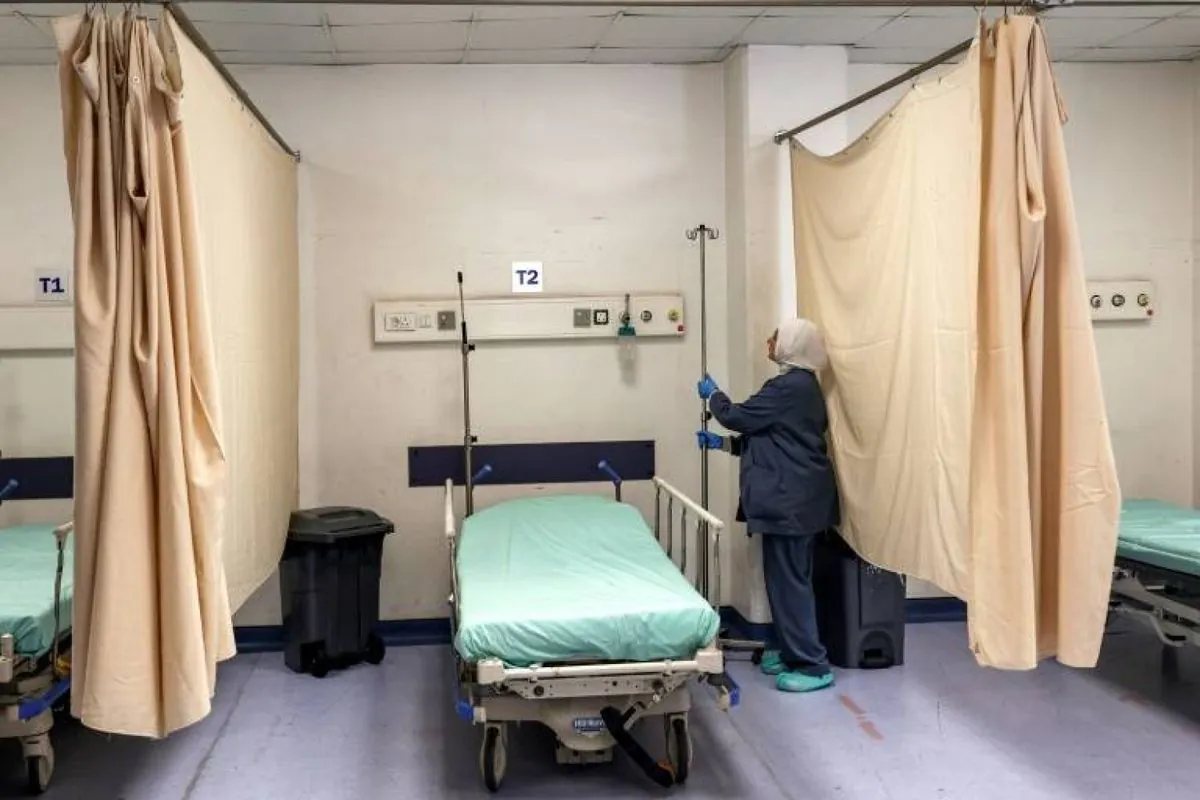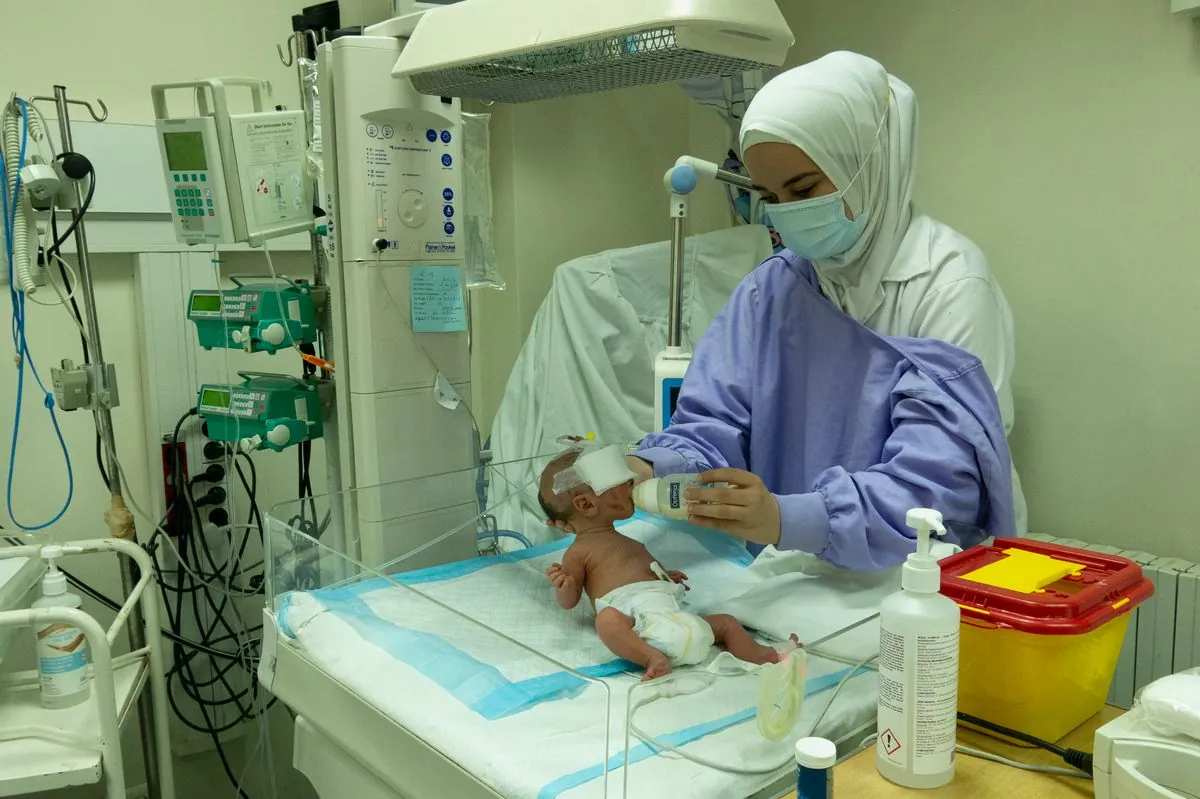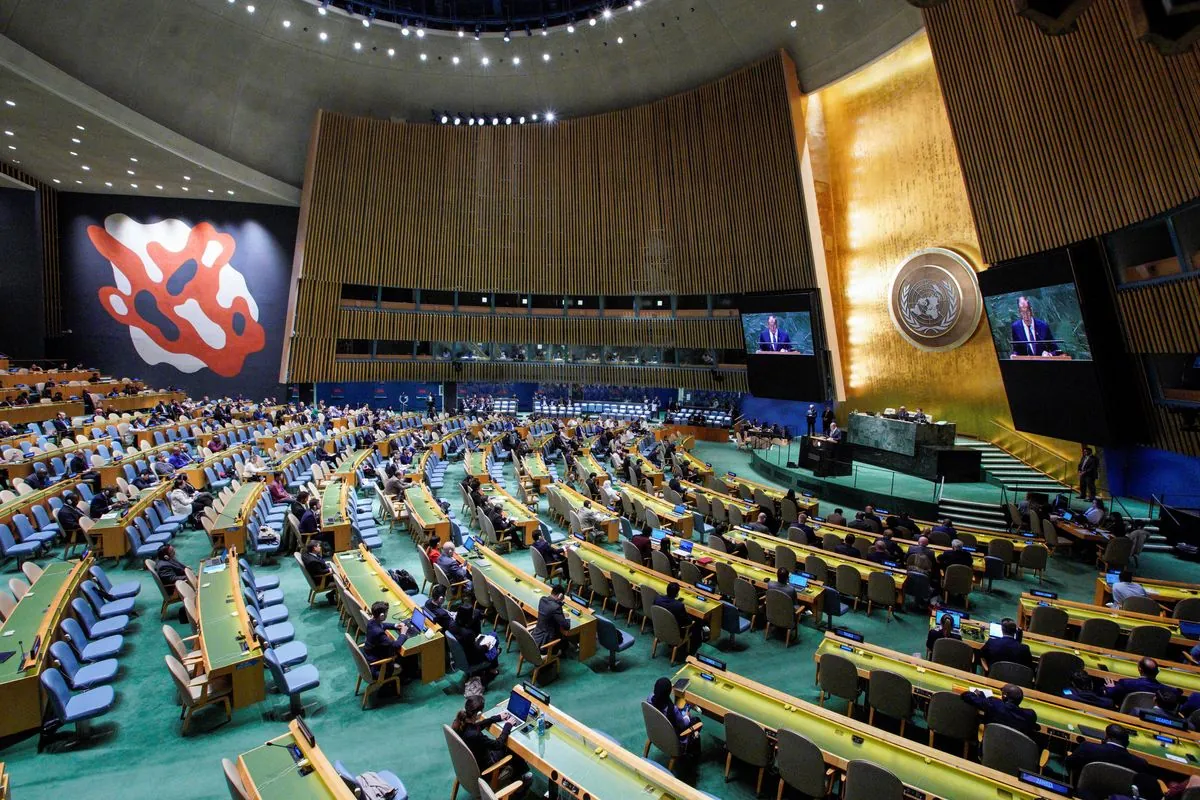WHO Urges Protection for Lebanese Health Workers Amid Rising Conflict
WHO reports 28 medics killed in Lebanon, calls for stronger safeguards. Nearly 2,000 casualties in year-long conflict. Emergency supplies delayed due to flight restrictions, straining healthcare capacity.

The World Health Organization (WHO) has issued an urgent call for enhanced protection of health workers in Lebanon as the conflict between Israel and Hezbollah intensifies. Dr. Tedros Adhanom Ghebreyesus, WHO Director-General, reported that at least 28 on-duty medical professionals have lost their lives in the past 24 hours due to the escalating violence.
Lebanon, a country of approximately 5.5 million people, has been grappling with multiple crises in recent years. The current conflict has exacerbated the strain on its healthcare system, which was once considered among the best in the Middle East. With 28 public hospitals and over 138 private facilities, the Lebanese healthcare sector is now facing unprecedented challenges.
According to the Lebanese health ministry, the toll of the year-long conflict has reached nearly 2,000 casualties, including 127 children, with 9,384 individuals injured. Among the deceased are 73 healthcare workers, as reported by the WHO.
Dr. Abdinasir Abubakar, WHO's representative in Lebanon, emphasized the severe impact on healthcare services:
"Hospitals have been already evacuated. I think what I can say for now is the capacity for mass casualty management exists, but it's just a matter of time until the system actually reaches its limit."
The situation has led to a significant reduction in available medical personnel, with many fleeing the areas under bombardment. This exodus has severely limited the provision of mass trauma management and continuity of health services.

Compounding the crisis, the WHO faces obstacles in delivering crucial medical supplies. A large shipment of trauma and medical supplies scheduled for delivery on October 6, 2023, has been cancelled due to flight restrictions. The organization is now exploring alternative routes by sea or road to ensure the delivery of emergency supplies.
Lebanon's healthcare system, which accounts for about 8% of the country's GDP, is struggling to cope with the influx of casualties. This crisis comes on the heels of other challenges, including an economic collapse that has seen the Lebanese currency lose over 90% of its value since 2019.
The country's unique demographic makeup, with 18 recognized religious sects and the largest number of refugees per capita globally, adds complexity to the situation. Lebanon's rich history, dating back to ancient Phoenician civilization, is now overshadowed by the current conflict and its humanitarian consequences.
As the cedar tree on Lebanon's flag stands as a symbol of resilience, the international community watches closely, hoping for a resolution that will allow this Mediterranean nation to recover and rebuild its once-renowned healthcare system.


































